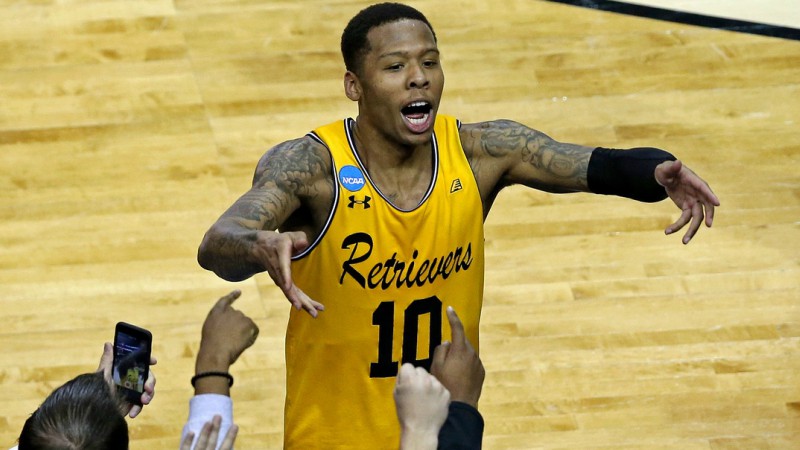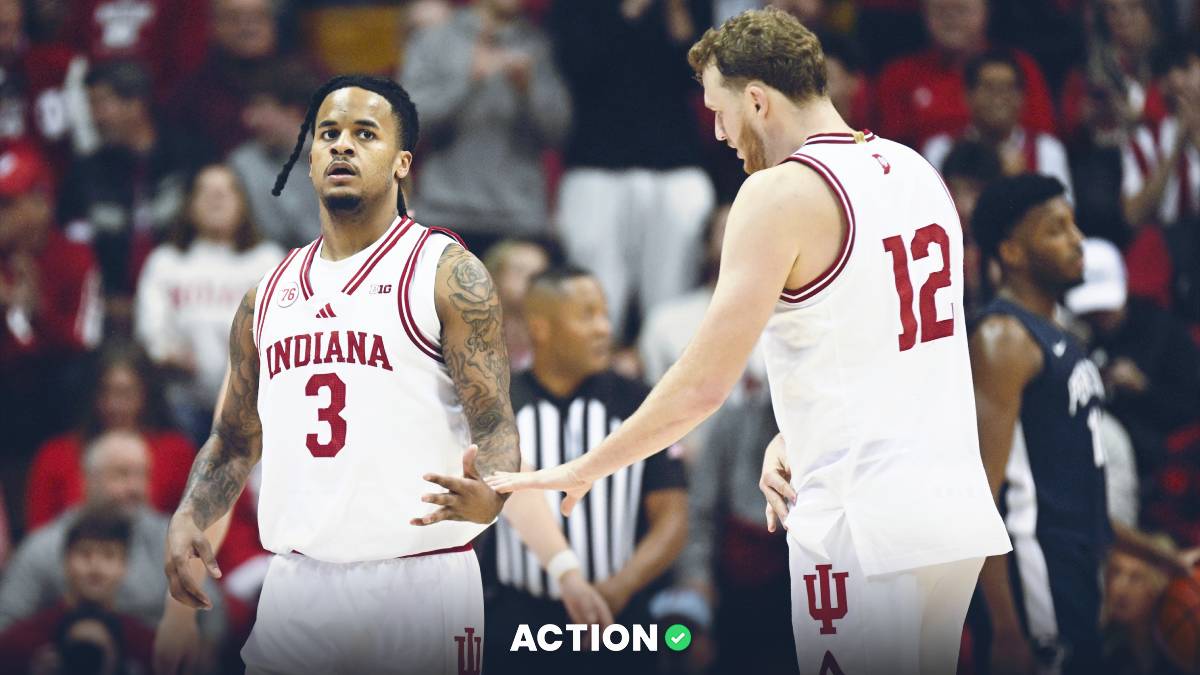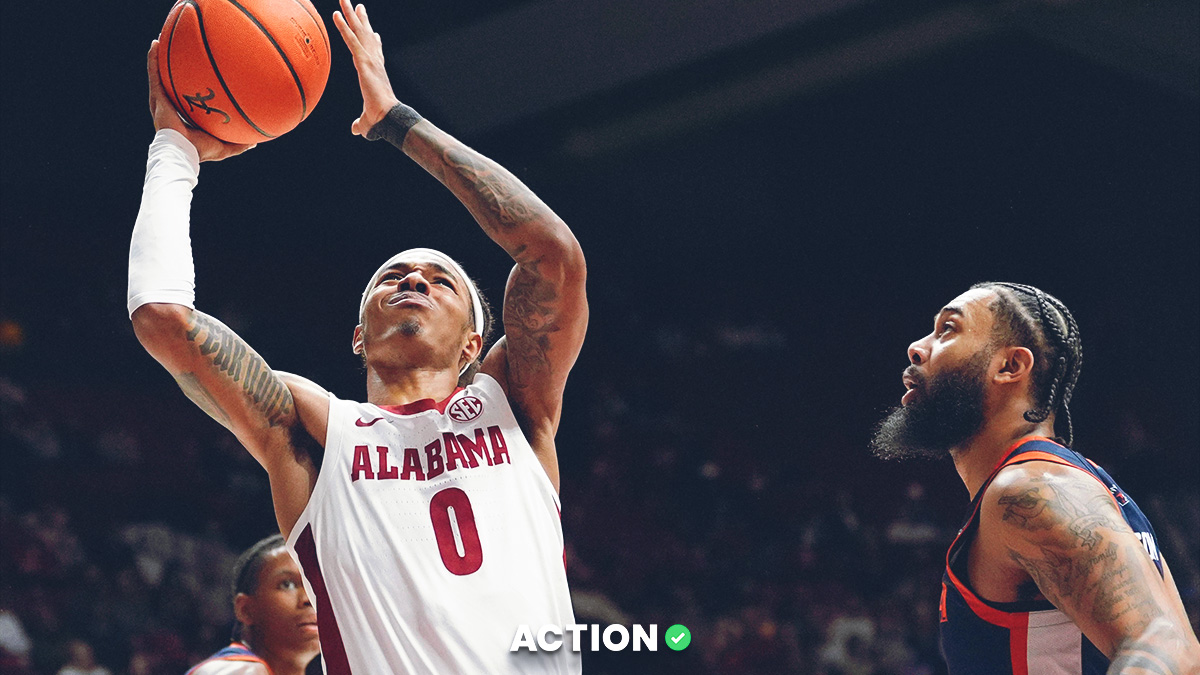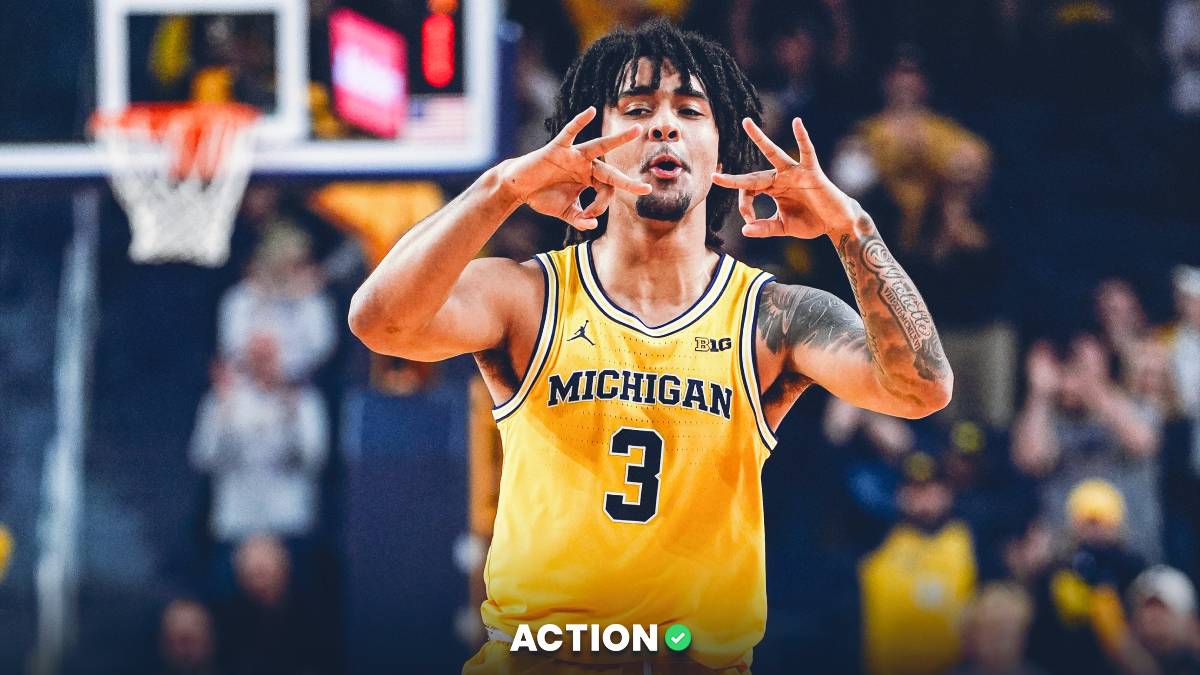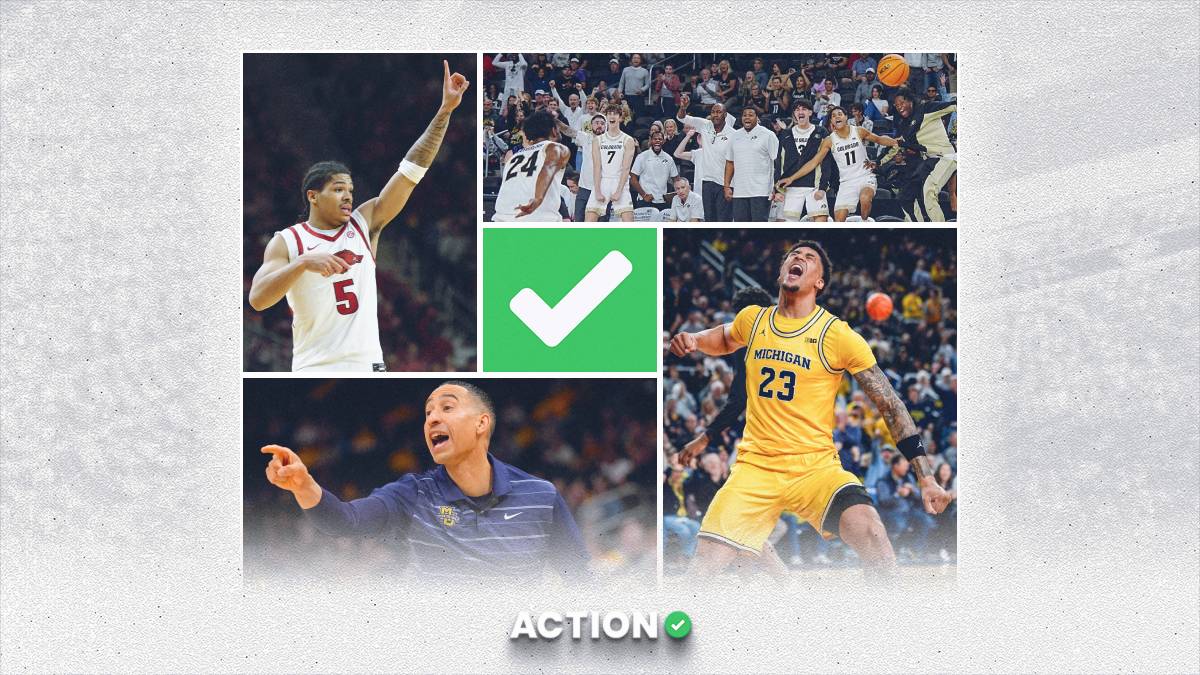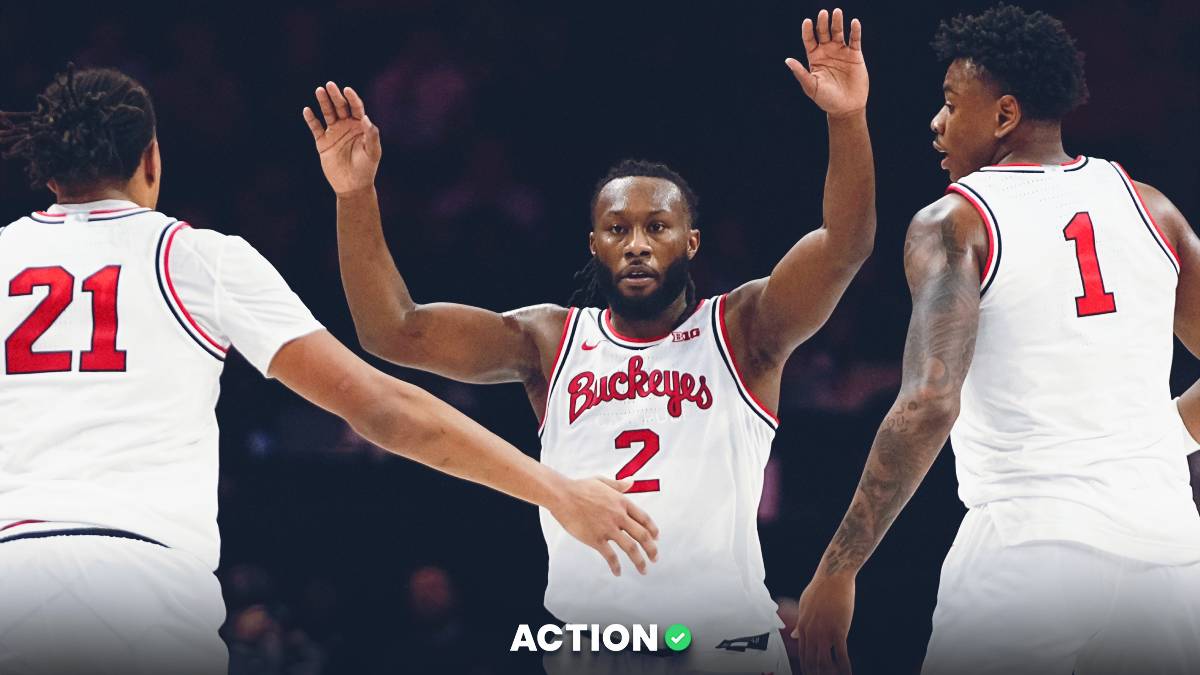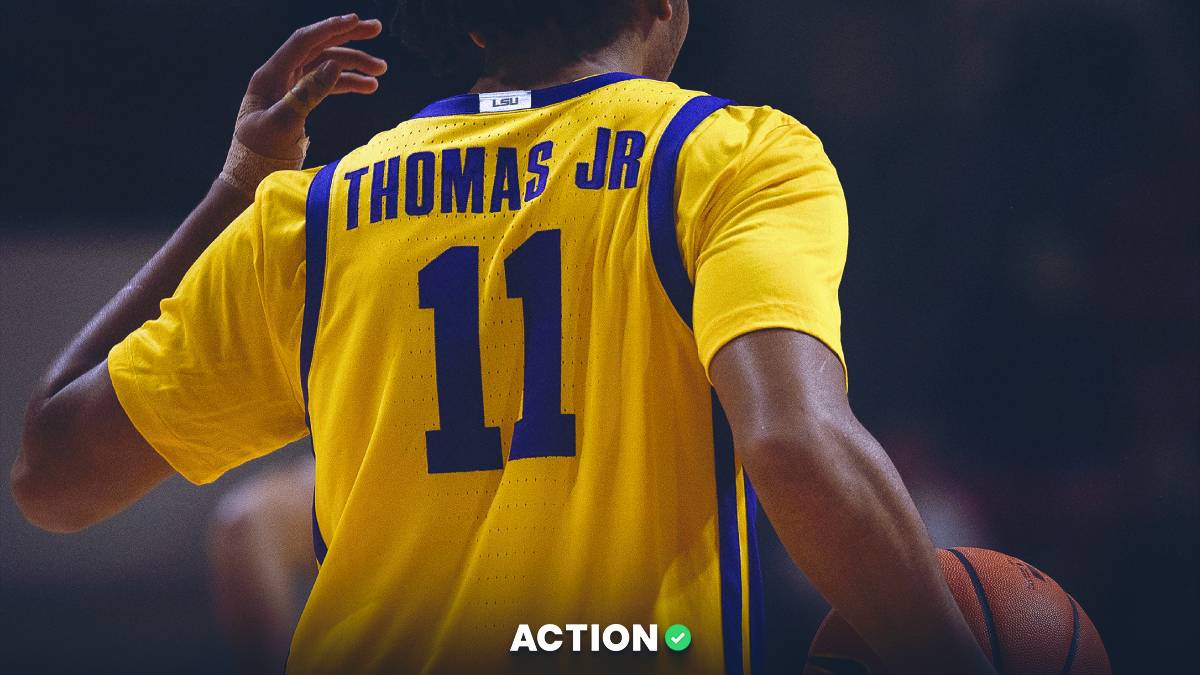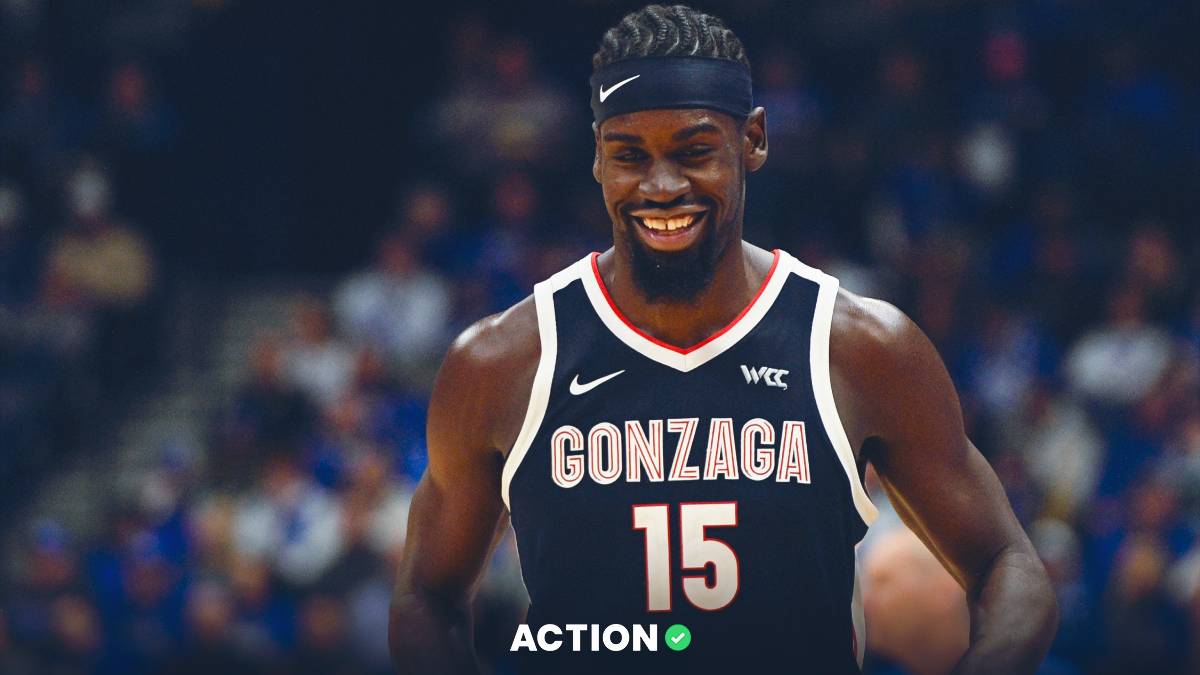For those who didn't read my first article, I bet a college friend $10,000 in 2007 that a No. 16 seed would defeat a No. 1 seed between 2008 and 2020. Essentially, he had a 52-team moneyline parlay of all of the No. 1 seeds in the first round of the NCAA Tournament over the course of 13 years. And I just needed him to lose. He started out 43-0 before Virginia fell to Maryland-Baltimore County this season.
Ever since the original story posted, I've gotten lots of questions. Let's run through some of them quickly.
Who Had The Value?
Many asked who actually had the better end of this bet, considering that there was no juice involved. To answer that, you need an assumption for the average probability of a No. 1 seed beating a No. 16 seed. A fair starting point is 98%, which is a fair moneyline assumption for a 20-point favorite. In that case, I had the better side, as illustrated by the chart below.
Using a winning percentage assumption of 98% for No. 1 seeds, a No. 16 seed has a 65% chance of winning over the course of 52 games. (Calculated as .98^52.) That translates to true odds of -185 (185/285 = 65%).
I decided to take it one step further and actually calculate the average closing spread for No. 1 seeds between 2008 and 2018, which came to 22.09 points. While you will see wildly different moneylines for large spreads, it's fair to see -7000 for a 22-point favorite, which implies a 98.6% win probability (7100/7000). From a basic average perspective, the break-even point of our bet sits at 98.7%; therefore, if you believe that a No. 1 seed on average has a better than 98.7% chance of beating a No. 16, then he made the correct wager. If not, then I did. Bottom line, from a pure basic average perspective of the actual moneylines, we entered into a very fair bet.
However, statistics is a little more complex than basic averages. The true odds of a No. 16 seed winning are actually much better, as the impact of significantly smaller favorites (ex. Kansas -14 vs. Penn this year) is not accurately captured in a simple average.
If you want to calculate the true probability, you would multiply the probabilities of all 52 games. Since we don't know the spreads for 2019 and 2020, I assumed the 10-year average of -22. In that case, using the true moneyline odds for 2009-18 and an average assumption for 2019-20, I calculated the true probability of a No. 16 seed winning at approximately 62%, which translates to fair odds of -165 (165/265).
The Original Dilemma
As I mentioned in the original article, my friend and I lost touch over the years. After consistently texting every March for the first few years after college, we stopped talking at all in 2012. He even had a new phone number. I struggled with how to go about 1) finding him and 2) broaching the subject of our bet. Sending an email to a friend you haven't talked to in six years asking for $10,000 from a bet made over 11 years ago just feels odd.
Gambling Twitter seemed to be split on what I should do. Some said I should just forget about it, and others said he needs to pay me. Everyone had a unique take, which just confused me even more. I ultimately decided to contact him after tracking down his email.
The New Dilemma
After a few Google searches and conversations with some other college friends, I found out what he was up to in life. He actually switched careers and now works in a very noble industry, but one that doesn't pay a high salary. I reached out to his work email in a friendly manner by just saying hi and hoping that all is well with him. I then briefly mentioned UMBC's win, which I said triggered my desire to reach out to see how he was doing. He responded and said that he wanted to pay but would need some time.
After learning about his life changes and that he no longer even bets, I don't want to hurt an old friend financially. So here's the new dilemma: He wants to pay, and I don't want him to. I think we will eventually just settle on an amount that works for both of us.
Other Questions
Would I have paid? Yes, absolutely. You have to honor the code. However, if I'm being honest, I'm not sure I would have actively tried to hunt him down if I had lost, especially since we hadn't talked in years. I do know that I would have gladly paid if he had reached out to me. As I said before, some might view $10,000 as an outrageous amount to bet between friends, but remember that the bet spanned the course of 13 years.
Did I make this all up? Yes, absolutely. I've been setting up this lie with tweets about this bet over the last five-plus years just so I could write an article about it for a company that didn't exist at the time. The long con.
Would I make this bet again? 100%. Given the statistical analysis above, the true odds of a bet on a No. 16 seed beating a No. 1 seed over a 13-year period should be about -150. As a result, I'd even take the same bet with -125 odds. Mark my words: We will see another No. 16 seed win by the year 2030! Anybody want to take my action?


